New device? Here's how to properly protect it
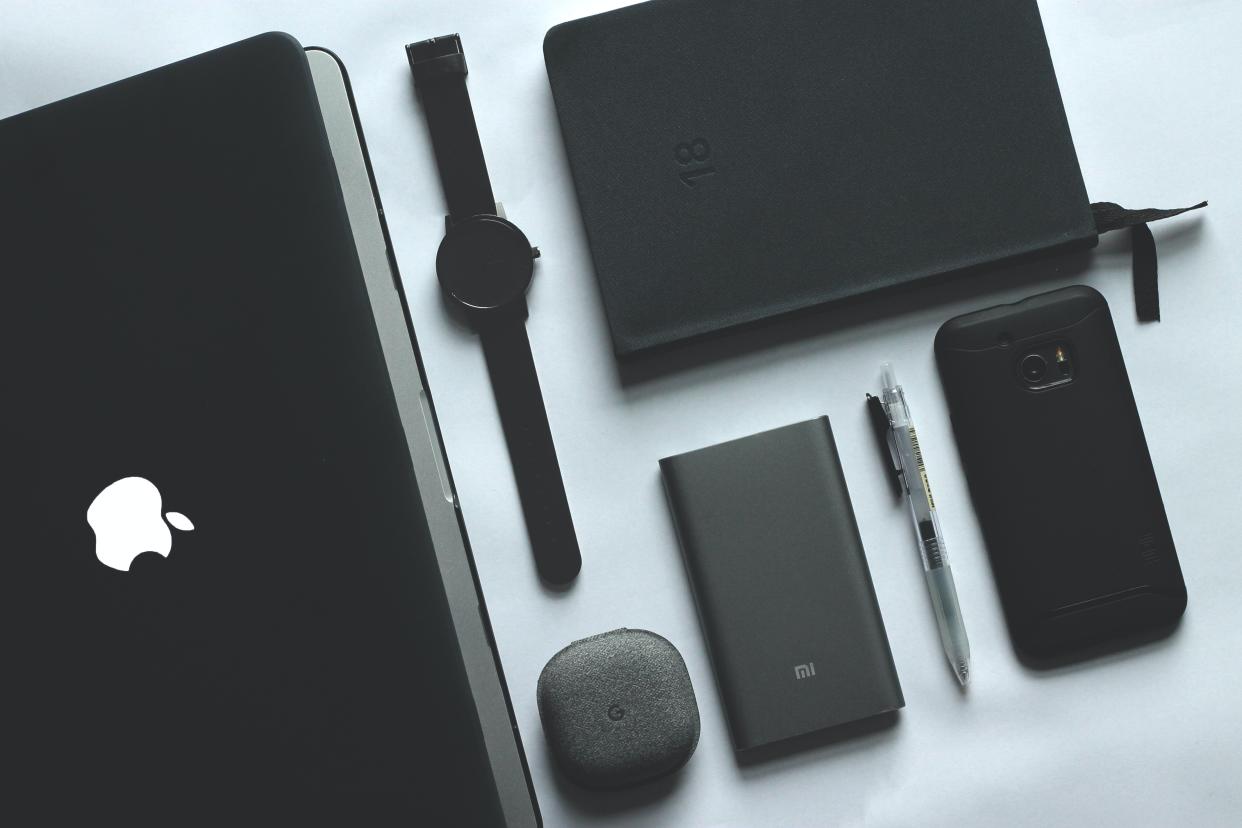
Christmas is the perfect time to buy (or receive) digital devices. However, it can be easy to forget to get adequate protection for them. With data theft and malware running rampant these days, it’s paramount you protect these new devices.
On top of this, piles upon piles of cookies and other trackers are hopping onto your device daily. Even sites that may seem benign can be home to malware and other cyber threats. Thankfully, Black Friday is the perfect time to upgrade your device protection suite.
A VPN, antivirus, and a high-quality password manager ensure you have a safe, private browsing experience. Today, we’ll be looking at what these tools can do for you, and why proper device protection is so important.
The best VPN in 2023
A VPN (Virtual Private Network) is an application that once installed on your devices, routes your internet traffic through international servers. This enables you to change your apparent location online. This means you can circumvent efforts to track your browsing history, and unblock streaming sites like Netflix or Hulu.
A VPN also encrypts your traffic, this means that even if your data is intercepted by a hacker, the government, or even your ISP, they’ll be unable to garner any information from it.
Not only does this increase your privacy, but you’ll also be able to reach sites that may be banned by your ISP. For example, if you live in China or Russia, you'll be able to access sites like Google and YouTube.
If this sounds like something you need, we’ve compiled a list of the best VPNs for you. A snapshot of which you can see below:
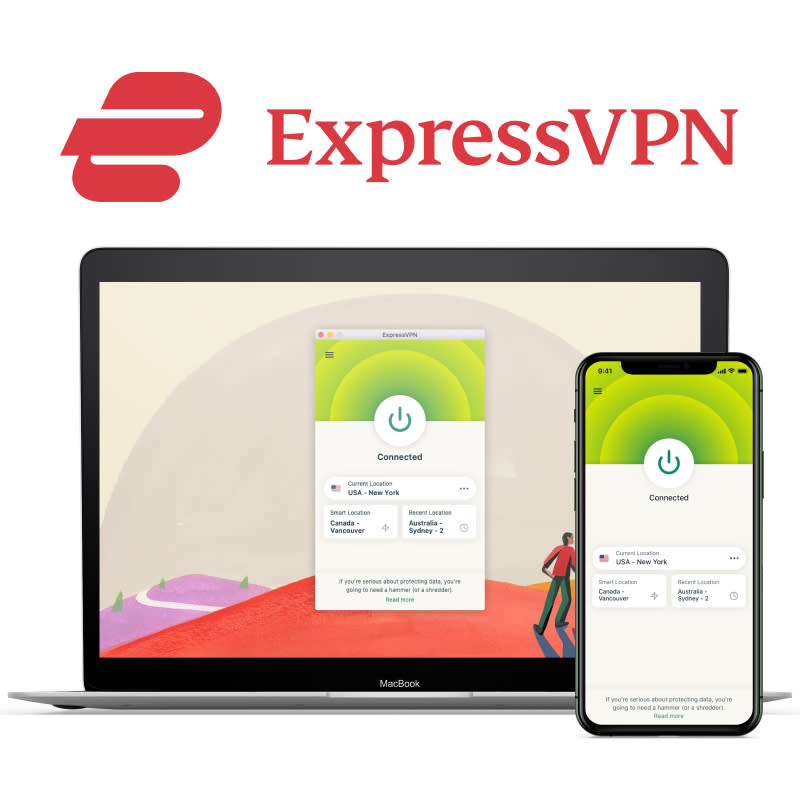
1. ExpressVPN: The Best VPN - 3-Month Free Trial
ExpressVPN has been dominating performance metrics across the board in 2023. You get maximum convenience with its ease of use and high success rate in unblocking streaming sites. What sets ExpressVPN apart is how this is combined with first-rate security features ensuring every click is saved.
You can try ExpressVPN for free today with a Tom’s Guide exclusive 3-month free trial.View Deal
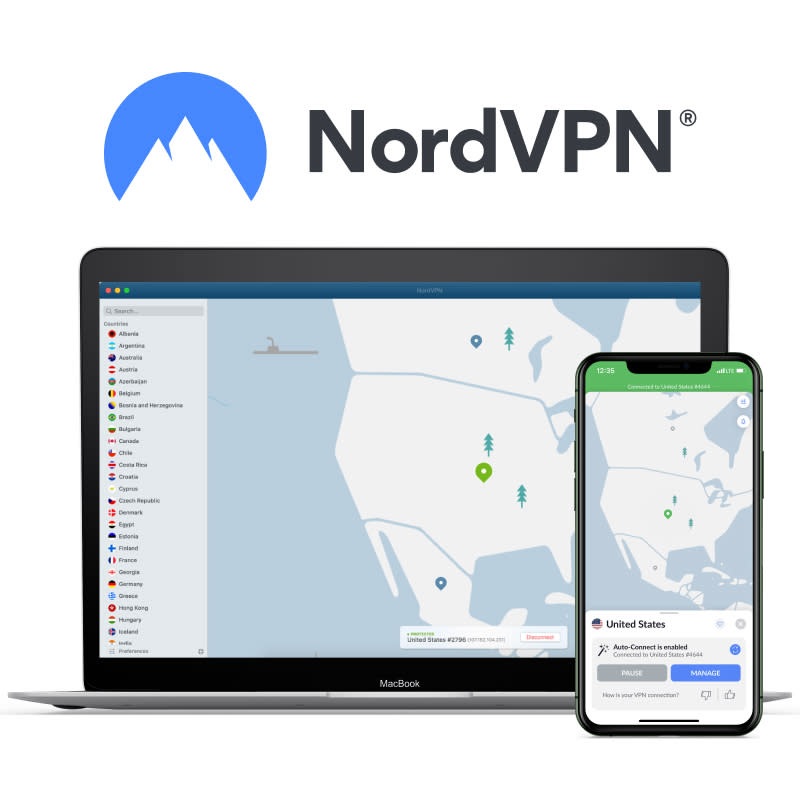
2. NordVPN: Quickest VPN on The Market
NordVPN is likely the most popular VPN out there. It provides a robust security suite including an ad blocker, data breach scanner, and malware protection. However, what gives NordVPN such a large presence in the industry is its consistently high speed ensuring a seamless browsing experience.
NordVPN is a bit cheaper than ExpessVPN, sitting at $2.99 per month. On top of the 30-day money-back guarantee, if you get NordVPN during its Black Friday sale, you’ll get 3 months free.View Deal
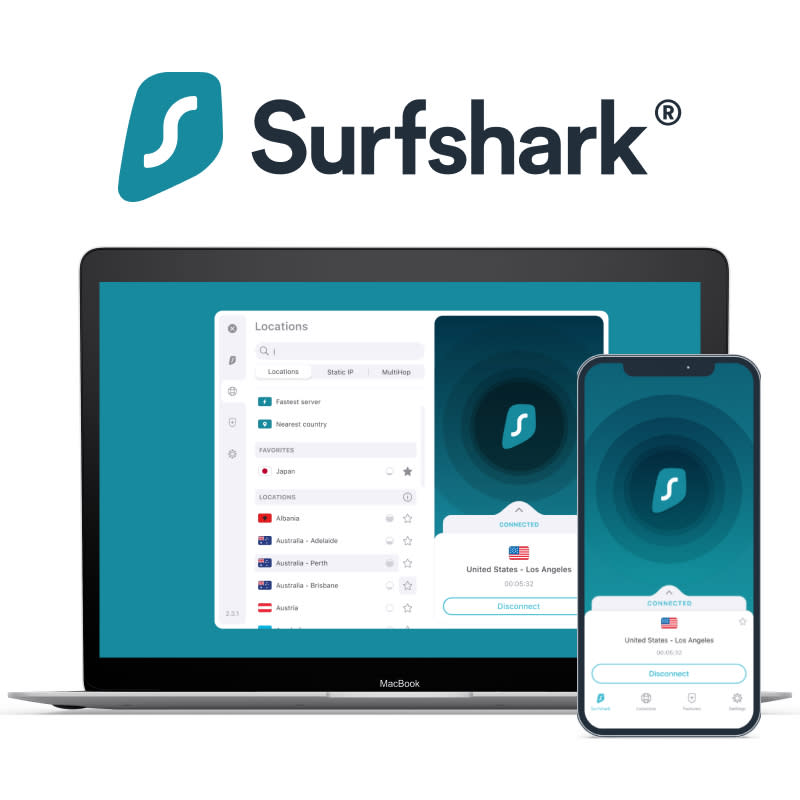
Surfshark is your best bet if you want to get a premium-quality VPN on the cheap. Despite being a budget-conscious choice, Surfshark is relatively close to NordVPN and ExpressVPN in terms of performance, excelling at streaming and day-to-day applications.
Surfshark will run you just $1.99 with 3 months free, with a 30-day money-back guarantee ensuring it’s risk-free to try it out.View Deal
How to pick a VPN to secure your device
At first glance, most VPNs and their offerings may seem pretty similar. After all, they all do fundamentally the same thing. However, the peripheral features, polish, reliability, and speed of a VPN can make a dramatic difference in your experience.
When picking a VPN, consider the following:
Total feature-set: The more features a VPN can pack intuitively the better. Some to look out for include a killswitch and split tunneling.
Your use-case: If you’ll just be using a VPN to browse Google and Watch Netflix, you might prefer a fast VPN like NordVPN above overall better choices. On the other hand, if you’re privacy-minded first, then ExpressVPN is ideal for you.
Peripherals: Peripheral features like data breach detection, leak protection, etc. can be an invaluable part of your online security.
User-friendliness: You’ll want the VPN to be quick and convenient for you to use. Price: The best VPN for you needs to fit into your budget like a glove.
Now one thing to note is that while free VPNs do exist, not only are they narrower in terms of the features they bring to the table, but they are oftentimes restricted and less reliable than their paid counterparts.
How we test VPNs
To make sure that you’re getting the most bang for your buck with your VPN choice, we have developed a unique testing methodology based on our 13 years of experience in the field.
We have a full in-house team that sets benchmarks, implements tests, and analyzes results for each VPN we talk about. This aggregate data is then processed, and compared to our user’s needs.
For VPNs in particular, this means signing up for a plan and testing it out on each OS it's available on individually. We put emphasis on the Windows app, and we try to break just about anything on it.
One of our main criteria is streaming, and as it still gives VPNs a run for their money sometimes. This involves booting up Netflix and trying to access it from a number of spoofed regions to make sure the locations listed on the VPNs page are working as intended.
From there, it’s simply a matter of keeping our lists updated by analyzing the websites of various VPN providers every six months and testing out any new features when they are released.
VPN FAQs
Overall, yes While there have been issues with free VPNs leaking data in the past, the same cannot be said for their paid competitors.
It depends on your jurisdiction. Some countries, like China or Turkmenistan, have banned the VPNs, meaning any and all use is against the law. It’s also worth keeping in mind that any illegal activity performed while using a VPN is still a crime.
Yes, most VPNs put a heavy emphasis on ease of use. For example, ExpressVPN’s one-click connect feature will automatically connect you to the fastest server to you. The Lightway protocol will also automatically select the best server and encryption method for your preferences.
The best antivirus in 2023
An antivirus is a program that detects and prevents malware and other cyber threats from infecting your devices. With malicious actors becoming more sophisticated and widening their targets by the day, no operating system remains safe from the threat of viruses.
Malware can have a number of impacts, ranging from marginally slowing down your device to making it almost entirely unusable. However, malware isn’t the only threat you should be concerned about. Increasingly, cyber criminals and launching phishing attacks and stealing crucial sensitive information to commit identity theft. These cyber threats can have even more devastating consequences, going as far as taking funds directly from your bank account.
The best antivirus software is there to keep you safe from this, on top of most first-rate solutions providing additional features to ensure your safety.

1. Norton - Complete Device Protection
Norton’s security suite includes everything you need for complete device protection. With an antivirus, VPN, password manager, parental controls, and even identity theft protection. If it’s in your budget, this clever solution provides everything you need for your digital security and then some. View Deal

2. Bitdefender - Best Antivirus For The Budget-Conscious
Bitdefender’s Antivirus Plus brings not only state-of-the-art malware protection but will also defend you from identity theft and phishing attacks. This, when combined with its intuitive user interface and a plethora of other features makes its affordable price tag hard to believe.View Deal

3. McAfee - Best Choice For Families
McAfee’s two antivirus bundles- Antivirus Plus and Total Protection Plus can protect up to 10 devices, making it the perfect choice for families to protect all household devices under one subscription. On top of this, Total Protection Ultimate gives you every security feature you could want.View Deal
How to pick an antivirus to secure your device
Before committing to an antivirus, make sure you’ve determined what you need out of it, and whether or not your chosen antivirus can provide this. If you’ve got children or a lot of devices, your first consideration should be a solution that can be used across them.
When picking an antivirus, consider the following:
The threat database: Ideally, you want a solution that’ll protect you from as many threats as possible.
Parental controls: With children, being able to control their internet access can help prevent a lot of would-be issues.
Virus removal: It’s important for your solution to be able to remove any pre-existing viruses, as well as address any threats it may not detect at first.
Price: While the best antivirus solution might cost a pretty penny, there are many serviceable solutions available to the budget-conscious.
Peripheral features: Features like identity protection, password protection, or data encryption can help bring your device protection to the next level.
Platform support: If you’ve got, say, a Windows PC and an Android phone, you’ll need a solution that can cover both of those platforms under one subscription.
Beware any software that claims to be an iOS antivirus, as Apple doesn’t support these tools. Additionally, due to the way iOS is made, there are not many viruses that can infect devices the use this operating system.
How we test antivirus software
When testing antivirus software, the main criteria we look at are user-friendliness, system load, performance and protection quality, as well as evaluating any peripheral features the antivirus might have. We place a premium on features that’ll help you with “soft” cyberthreats like phishing attacks and identity theft.
To assess system load on both Windows and macOS, we use a custom test that determines how long it takes the device’s processor to match 20,000 names and addresses on a spreadsheet while the antivirus is running. The longer it takes the device, the heavier the system load.
For assessing malware detection, we create an aggregate sourced from three independent labs: AV-TEST, AV-Comparatives, and SE Labs. Each of these labs puts together stress tests containing thousands of cyberthreats as well as hundreds of new samples to make sure the software is capable of detecting brand-new malware.
Once our tests are complete, we judge each piece of software in each category. From there, we aggregate the results into a list for your perusal.
To find out more about our in-depth testing process, take a look at the “how we test, review, and rate products on Tom's Guide” page.
Using antivirus FAQs
Our testing shows Norton antivirus to be the best Antivirus of 2023.
Based on our testing, it is Norton antivirus. It offers a variety of different packages, each offering a different set of peripheral features, but our top pick is the Norton 360 Deluxe. It not only comes with a password manager and VPN, but will monitor the dark web for any of your personal data that may have been exposed in a data breach. For families, we recommend Norton 360 Premium and Norton 360 Platinum, as they’ll give you a lot of personal storage and coverage for up to 10 to 20 devices. To find out more, check out our list of the best antivirus software.
Antiviruses work in two ways. One way is by scanning files that attempt to enter your device and comparing them to a database of known malware. This approach can sometimes be aided by algorithms that notice common trends between viruses, this method can detect new viruses that aren’t in any databases.
Alternatively, antivirus can also work by scanning programs on your device and doing the same process as above with them. Afterward, the antivirus will allow you to quarantine or delete offending files entirely.
Both of these methods fundamentally serve the same purpose - keeping malware and other cyber threats off of your device.
Yes. Cyber threats are only getting more and more sophisticated as technology advances. Antivirus solutions will not only protect your device and data but can also provide identity theft protection. This means that even if your data is stolen, your identity will remain secure. A premium antivirus will also protect you from phishing, which is a kind of cyberattack where the attacker poses as a legitimate person or company in order to trick you into giving up important data.
Yes and no - while free antivirus solutions have almost caught up with premium products in threat detection, premium software still provides an important layer of extra protection. Premium solutions also generally have a better UI and offer much-needed peripherals such as file encryption and parental controls.
The best password manager in 2023
Many of us have made the mistake of reusing the same password for multiple accounts. Unfortunately, this can be extremely dangerous, as it means if a hacker gains access to one of your passwords, they then can potentially access any account that also uses these login credentials. While an antivirus will protect you from an attacker taking your login information directly from your device, your login credentials can also be stolen during cyber attacks against any websites or services where you have an account.
The analog alternative (that is, writing down passwords in a document or paper), carries its own risks. A piece of paper or notebook is easily mislaid and can even be stolen. Thankfully, password managers exist to not only streamline the password creation process but also generate and store secure, uncrackable passwords.
To get a taste of what the best password managers have to offer, look below.

1. 1Password - Everything You Need In One Package
1Password is a convenient, easy-to-use password manager with additional privacy features. Available cross-platform, 1Password has both individual and family plans available. With its Travel Mode, you can protect your passwords on the go, and take advantage of “masked” email addresses to take your device protection to the next level.View Deal

2. Dashlane - Reset Hundreds of Passwords Simultaneously
Dashlane is most well-known for its bulk password changer capable of resetting hundreds of passwords at the press of a button. It’s available on most major platforms and browsers and offers both family and individual plans.
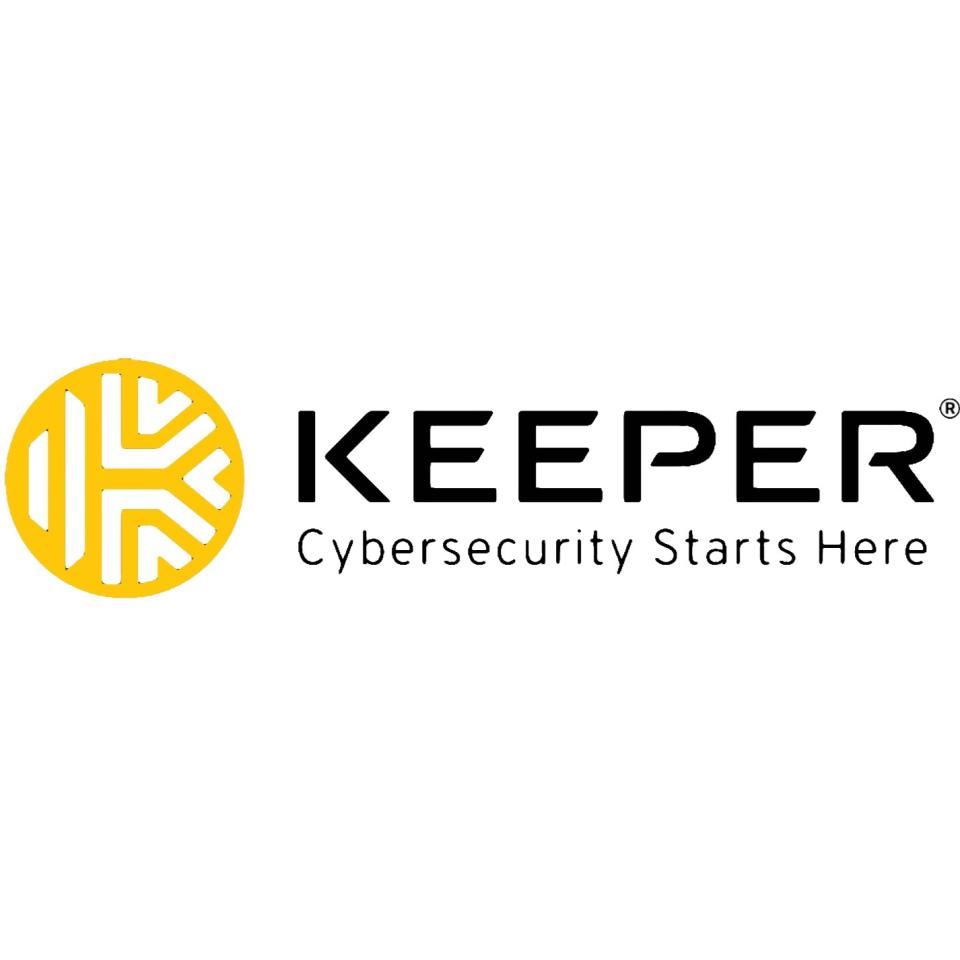
3. Keeper - Most Secure Password Manager
Keeper boasts the most robust security suite out of any password manager on the market. It allows for extensive use of biometrics and can monitor the internet for any unauthorized usage of your data. It also offers individual and family plans.
How to choose a password manager to secure your device
Most password managers offer similar, if not identical core functions, with the true difference between them laying in additional features.
For example, some password managers, such as the three listed above, will alert you about any data breaches containing your data. They can also save and store securely sensitive information like personal details and card numbers. This makes them not only more convenient but also safer than the competition.
Overall, when selecting a password manager you should look at the following:
Price: A password manager needs to fit into your budget to be useful.
OS support: If you use multiple devices, you should opt for a password manager that supports them.
Intuitiveness: A password manager’s interface should be easy to use from the first moment.
Peripheral features: Data breach detection, a peripheral VPN, or the like can elevate the utility of a password manager to the next level.
Finally, the biggest difference between password managers is whether they save your data locally or in the cloud. Some, like 1Password, provide you with both options, but most will only work with one.
Saving passwords locally is slightly more secure, but makes it more difficult to sync and move your password vault. Meanwhile, cloud-based storage is slightly less secure but is a lot more convenient to sync.
How we test password managers
To make sure we’re providing you with trustworthy information, we’ve tested a variety of password managers. This means putting their browser, desktop, and mobile apps through a batch of extensive tests. We’ve also looked at their OS support to ensure that each service works as advertising on all operating systems.
We’ve used a ThinkPad T470 running Windows, an iPad Pro for iOS, and a Samsung Note 20 for Android. As for browsers, we’ve tested using the three most popular ones: Google Chrome, Mozilla Firefox, and Microsoft Edge.
These tests included inputting credentials for a plethora of sites including news and social media into each password manager. We then browsed as normal to make sure that the manager’s autofill features were working as intended.
To find about our more in-depth tests of these password managers, check out our how we test page.
Password manager FAQs
While paid and free password managers offer comparable levels of protection, paid password managers generally offer more features and peripherals. They may offer support for multiple devices, dark web monitoring, or alert you when you’ve been exposed to a data breach. Furthermore, you may get peripherals such as an antivirus or data storage. Finally, a big difference is that a paid option will allow you customer support access if anything goes wrong.
A password manager stores, saves, and encrypts your login credentials so that you can conveniently use different, robust passwords on the web.
Yes, most smartphones can combine the utility of a password manager with biometrics and face ID to add another layer of security.
Yes, though it’s worth noting they’re not the be-all-end-all of device protection. Ideally, you should combine a password manager with other cybersecurity software.
Any piece of software can theoretically be hacked. However, password managers use extremely robust encryption software to ensure they’re better protected against hacking.
While this is convenient and free, it doesn’t quite offer the same convenience and protection as a paid solution. You can encounter syncing issues (such as between Apple’s Keychain and Chrome’s password manager) and you miss out on many peripheral features.

